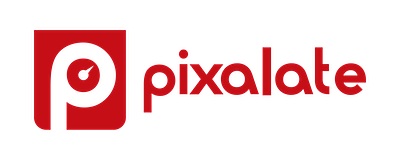
CTV Under Fire: EMEA Ad Fraud Soars, Germany Leads the Charge
New data reveals surging ad fraud in Connected TV across Europe, with Germany experiencing significantly higher invalid traffic rates. Is the promise of programmatic TV losing its shine?
CTV Under Fire: EMEA Ad Fraud Soars, Germany Leads the Charge
By Angela Gray | November 07, 2025
Programmatic advertising promised efficiency and reach, particularly within the booming Connected TV (CTV) landscape. But a new report from Pixalate reveals a troubling trend: a surge in invalid traffic (IVT) and ad fraud across Europe, the Middle East, and Africa (EMEA), threatening to erode trust and impact marketing ROI. While the issue isn’t new, the escalating rates – particularly in Germany – demand a closer look at the vulnerabilities within the CTV ecosystem.
Pixalate’s Q3 2025 report highlights a significant disparity in IVT rates between the UK and Germany. While the UK registered a relatively stable 16% IVT rate on desktop and mobile web, 17% on mobile app, and 22% on CTV, Germany shows a much more alarming pattern, with CTV IVT rates soaring to 37% - significantly higher than the EMEA average of 19% for CTV. This discrepancy raises critical questions about differing levels of fraud protection, ad tech adoption, and regulatory oversight.
The CTV Crucible: Why is Fraud Flourishing?
The surge in CTV ad fraud isn't accidental. Several factors are contributing to the problem. Unlike traditional digital advertising, CTV lacks standardized measurement and verification protocols, creating ample opportunity for fraudulent actors. “The complexity of the CTV supply chain – with multiple intermediaries and a lack of transparency – makes it difficult to pinpoint the source of fraudulent activity,” explains a fraud analyst at a leading ad verification firm, speaking anonymously. “This opacity provides cover for bad actors to operate with impunity.”
The very nature of CTV also presents unique challenges. The rise of free, ad-supported streaming TV (FAST) channels, while offering viewers cost-effective entertainment, has inadvertently created a fertile ground for fraud. These channels often lack the stringent verification processes of established subscription-based services, making them attractive targets for fraudulent publishers.
Germany’s Outlier Status: A Regulatory Puzzle?
Why is Germany experiencing such a disproportionately high IVT rate on CTV? The answer is multifaceted. While Germany boasts a robust data privacy framework – the General Data Protection Regulation (GDPR) – this emphasis on privacy can inadvertently hinder fraud detection efforts. “The GDPR, while crucial for protecting user data, can make it more difficult to collect the signals needed to identify and block fraudulent traffic,” notes a regulatory compliance expert. “Finding the balance between privacy and fraud prevention is a constant challenge.”
Furthermore, Germany's ad tech landscape is characterized by a diverse range of players, from established media companies to emerging programmatic platforms. This fragmented market can make it harder to implement consistent fraud prevention measures across the entire ecosystem. “A lack of industry-wide collaboration and standardized verification protocols is contributing to the problem,” says a source within a German advertising agency.
The Cost of Inaction: Eroding Marketing ROI
The financial implications of ad fraud are substantial. Invalid traffic not only wastes advertisers' budgets but also distorts campaign performance data, leading to inaccurate insights and poor decision-making. According to industry estimates, ad fraud costs advertisers billions of dollars annually. “The impact on ROI can be significant, particularly for campaigns targeting high-value audiences,” says a marketing executive at a major consumer goods company.
The problem extends beyond wasted ad spend. Ad fraud erodes trust in the digital advertising ecosystem, damaging the relationship between advertisers, publishers, and consumers. If advertisers lose confidence in the ability to reach real audiences, they may shift their budgets to other channels, potentially hindering the growth of the digital advertising industry.
Combating the Crisis: A Multi-Pronged Approach
Addressing the CTV ad fraud crisis requires a concerted effort from all stakeholders. Here are some key steps that need to be taken:
- Standardized Measurement and Verification: The industry needs to adopt standardized measurement and verification protocols for CTV advertising, ensuring that all impressions are accurately tracked and verified.
- Enhanced Fraud Detection Technologies: Investing in advanced fraud detection technologies, such as machine learning algorithms and real-time threat intelligence, is crucial for identifying and blocking fraudulent traffic.
- Increased Transparency and Collaboration: Greater transparency and collaboration between advertisers, publishers, and ad tech providers are essential for sharing data and insights about fraudulent activity.
- Regulatory Oversight: Regulators need to play a more active role in enforcing existing fraud prevention regulations and developing new policies to address emerging threats.
- Industry-Wide Collaboration: Collaboration across the entire ecosystem to establish common baselines, implement best practices, and share intelligence is critical.
“The fight against ad fraud is an ongoing battle,” says the fraud analyst. “There’s no silver bullet, but by working together and embracing innovation, we can significantly reduce the threat and protect the integrity of the digital advertising ecosystem.”
While the promise of programmatic TV remains strong, the current trajectory of ad fraud demands immediate attention. Failure to address the issue could not only erode marketing ROI but also jeopardize the long-term viability of the CTV advertising industry. The time for action is now.
